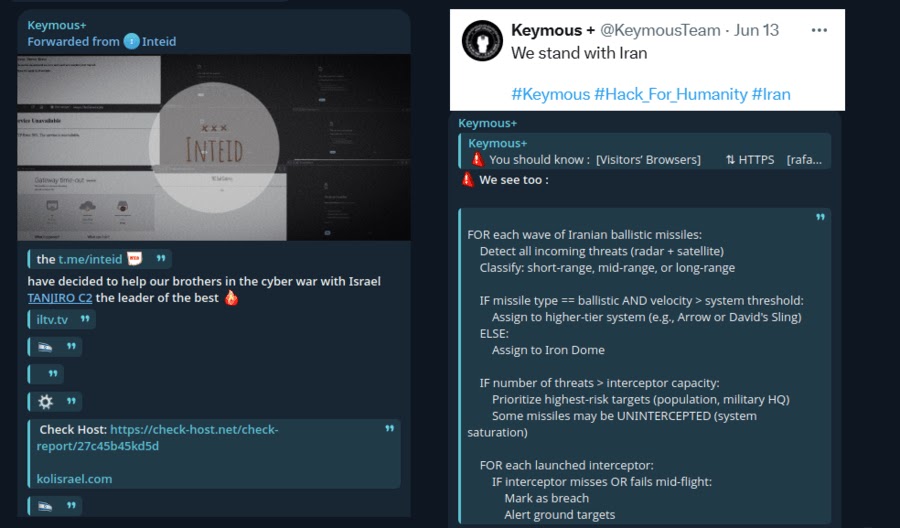A series of sophisticated cyberattacks targeting over 20 vital sectors in Israel and its allies has been launched by more than 80 hacktivist groups in a major escalation of cyberwarfare that parallels the ongoing Iran-Israel confrontation.
Following Israel’s recent airstrikes on Iranian military and nuclear facilities, and Iran’s swift retaliation, the digital battlefield has exploded with activity.
These attacks, primarily driven by pro-Iranian and pro-Palestinian groups, span government systems, military operations, energy infrastructure, financial institutions, and industrial control systems (ICS/OT), revealing a complex web of ideological, political, and potentially state-sponsored motives.
Escalating Cyber Warfare in Geopolitical Tensions
Cybersecurity experts warn of “faketivism,” where nation-state actors may be masquerading as independent hacktivists to obscure their involvement, further complicating attribution and amplifying geopolitical risks.
The surge in cyber operations began almost immediately after the kinetic strikes, with groups like Mysterious Team Bangladesh, Team Insane Pakistan, and GhostSec issuing ideologically charged statements via platforms like Telegram and X, calling for coordinated retaliation against Israel.
According to Outpost24 Report, their targets are diverse and critical, ranging from the Israeli Ministry of Justice and Supreme Court to energy giants like Delek Group and Paz Oil Company, as claimed by groups such as Handala Hack and Mr Hamza.
Sophisticated Threats Target Infrastructure and Data
GhostSec, known for its advanced capabilities, has detailed attacks on over 100 Modbus PLC devices and satellite systems, showcasing a shift from symbolic defacements to disruptive industrial sabotage.

Meanwhile, suspected faketivist entities like Cyber Av3ngers and Predatory Sparrow potentially linked to Iranian and Israeli state actors, respectively have targeted ICS/OT systems and critical infrastructure with custom tools like wipers and AI-assisted exploits, raising concerns about the blurring lines between grassroots hacktivism and state-sponsored cyber warfare.
The technical sophistication of these attacks varies widely, from basic Distributed Denial-of-Service (DDoS) campaigns using tools like Abyssal DDoS V3 to complex data exfiltration and ransomware operations such as GhostLocker.
Groups like DieNet and Laneh Dark have focused on psychological operations alongside technical disruptions, leaking sensitive data and amplifying propaganda to exploit public fear.
The breadth of sectors hit academic, agricultural, logistical, and even satellite infrastructure underscores the strategic intent to destabilize not just military but civilian life.
As alliances form among groups like Keymous+ and Anonymous Kashmir, sharing resources and intelligence, the potential for escalated, coordinated offensives grows.
Analysts predict intensified DDoS campaigns, targeting of allied nations like the US and UK, and retaliatory strikes by pro-Israeli actors if the conflict persists.
Find this News Interesting! Follow us on Google News, LinkedIn, and X to Get Instant Updates
